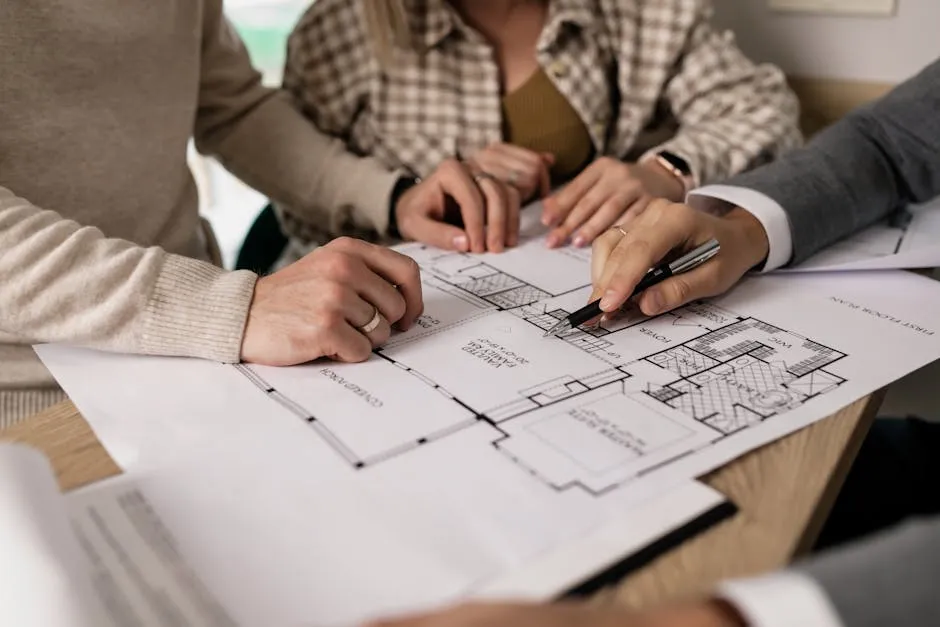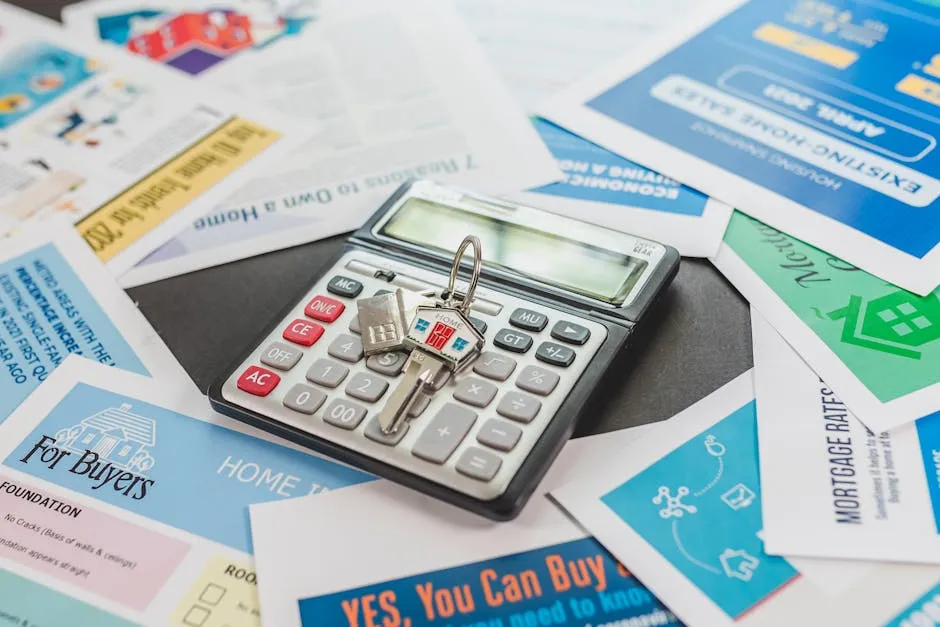
Conclusion
Understanding the legal steps to buy property in Dubai is crucial for a smooth experience. Each step, from drafting agreements to transferring ownership, requires careful attention. Seeking professional support can simplify the process and mitigate potential pitfalls.
Proper preparation and guidance can pave the way for a successful property purchase. If you’re ready to take the plunge, reach out to us at Ome Real Estate. We’re here to help you every step of the way!

FAQs
Can foreigners buy property in Dubai?
Absolutely! Dubai’s Law No. 7 of 2006 allows foreigners to purchase property in designated areas. These areas, often referred to as freehold zones, include popular locations like Dubai Marina and Downtown Dubai. This law provides complete ownership rights, making it an attractive opportunity for expatriates and investors. So, if you’re considering a property purchase here, you’re in good company!
What documents are required to buy a house in Dubai?
To make your property purchase smooth, gather the following documents: A valid passport, UAE residency visa (if applicable), Proof of income (like bank statements), Memorandum of Understanding (MOU), No Objection Certificate (NOC) from the developer, Purchase agreement, Seller’s identification proof. Having these documents ready will save you time during the buying process.
How long does the entire buying process take?
Typically, the buying process can take anywhere from two weeks to two months. This timeframe depends on various factors, including whether the property is mortgaged. Here’s a quick breakdown: Initial paperwork and agreements: 1-2 weeks, NOC acquisition: 1 week, Ownership transfer at DLD: 1-2 weeks. Being prepared can help speed things up!
What are the typical costs associated with buying a property?
When budgeting for your property purchase, consider these costs: Dubai Land Department (DLD) fee: 4% of the property value, Title deed issuance fee: AED 580, Registration fees: AED 2,000 to AED 4,000, depending on the property value, Real estate agent fees: usually around 2%. These costs can add up, so factor them into your overall budget.
Do I need a lawyer to buy property in Dubai?
Hiring a lawyer is not legally required, but it can be beneficial. A lawyer can help you navigate complex legal jargon and ensure your interests are protected. They can also assist in reviewing contracts and ensuring all legal requirements are met. This added layer of security can bring peace of mind during your property transaction.
Is it possible to buy property without an agent?
Yes, you can purchase property directly from developers or individual sellers. However, doing so comes with pros and cons. Without an agent, you might save on commissions, but you may miss out on valuable market insights and negotiation expertise. A licensed real estate agent can streamline the process and guide you through the legal steps, which can be particularly helpful for first-time buyers.
What is a No Objection Certificate (NOC)?
A No Objection Certificate (NOC) is a crucial document obtained from the property developer. It confirms that there are no outstanding fees or legal issues associated with the property. The NOC is necessary for the ownership transfer process at the Dubai Land Department (DLD). Securing this document can prevent future complications and smooth the path to ownership.
For insights into the latest trends in the Dubai real estate market, check out our article on Dubai real estate market trends 2024. Understanding these trends can significantly impact your buying decisions.
Please let us know what you think about our content by leaving a comment down below!
Thank you for reading till here 🙂
All images from Pexels

Considerations for First-Time Buyers
Buying property in Dubai can feel overwhelming, especially for first-time buyers. But don’t worry! A little preparation goes a long way. First, conduct thorough due diligence on the property. Research its history, location, and market trends. This knowledge helps you make informed decisions.
Next, engage with reputable real estate agents. They are well-versed in the market and can guide you through every step. Their expertise can save you time and help you avoid costly mistakes. Lastly, think long-term. Consider how the property fits into your financial future. Is it an investment or a forever home? Planning ahead can lead to a successful purchase.

Conclusion
Understanding the legal steps to buy property in Dubai is crucial for a smooth experience. Each step, from drafting agreements to transferring ownership, requires careful attention. Seeking professional support can simplify the process and mitigate potential pitfalls.
Proper preparation and guidance can pave the way for a successful property purchase. If you’re ready to take the plunge, reach out to us at Ome Real Estate. We’re here to help you every step of the way!

FAQs
For insights into the latest trends in the Dubai real estate market, check out our article on Dubai real estate market trends 2024. Understanding these trends can significantly impact your buying decisions.
Please let us know what you think about our content by leaving a comment down below!
Thank you for reading till here 🙂
All images from Pexels

Costs Associated with Buying Property
When purchasing property in Dubai, it’s vital to budget for various costs beyond the property’s price. The Dubai Land Department charges a transfer fee of 4% of the property value, along with a title deed issuance fee of AED 580. Depending on the property value, registration fees can range from AED 2,000 to AED 4,000.
Additionally, real estate agents typically charge around 2% of the property’s value. Don’t forget to factor in maintenance and service charges, which can vary significantly based on the property type and location. Being aware of these costs helps you avoid surprises and ensures a smooth buying process.
Proper planning and understanding these expenses can lead to a rewarding investment experience in Dubai’s vibrant real estate market. If you need assistance with the buying process or have questions about costs, reach out to us at Ome Real Estate. We’re here to help you every step of the way!

Considerations for First-Time Buyers
Buying property in Dubai can feel overwhelming, especially for first-time buyers. But don’t worry! A little preparation goes a long way. First, conduct thorough due diligence on the property. Research its history, location, and market trends. This knowledge helps you make informed decisions.
Next, engage with reputable real estate agents. They are well-versed in the market and can guide you through every step. Their expertise can save you time and help you avoid costly mistakes. Lastly, think long-term. Consider how the property fits into your financial future. Is it an investment or a forever home? Planning ahead can lead to a successful purchase.

Conclusion
Understanding the legal steps to buy property in Dubai is crucial for a smooth experience. Each step, from drafting agreements to transferring ownership, requires careful attention. Seeking professional support can simplify the process and mitigate potential pitfalls.
Proper preparation and guidance can pave the way for a successful property purchase. If you’re ready to take the plunge, reach out to us at Ome Real Estate. We’re here to help you every step of the way!

FAQs
For insights into the latest trends in the Dubai real estate market, check out our article on Dubai real estate market trends 2024. Understanding these trends can significantly impact your buying decisions.
Please let us know what you think about our content by leaving a comment down below!
Thank you for reading till here 🙂
All images from Pexels

Step 3: Obtaining a No Objection Certificate (NOC)
With the MOU signed, it’s time to apply for a No Objection Certificate (NOC) from the developer. This document confirms that there are no outstanding payments or legal issues with the property. Obtaining the NOC is a vital step, as it is necessary for the ownership transfer process. Be aware that fees for the NOC can vary depending on the developer. Typically, you’ll receive the NOC within a few days to a week, so plan accordingly.
Step 4: Transferring Ownership at the Dubai Land Department (DLD)
Once you have your No Objection Certificate (NOC), it’s time to finalize the ownership transfer. This step takes place at the Dubai Land Department (DLD), where both buyer and seller must be present. You will need essential documents, including your Emirates ID or passport, the signed Memorandum of Understanding (MOU), and the NOC from the developer.
Prepare a manager’s cheque for the property price, payable to the seller. After submitting these documents and paying the required fees, the DLD will verify everything. Once approved, you will receive a new title deed, confirming your ownership. This document is crucial for any future transactions related to the property.

Costs Associated with Buying Property
When purchasing property in Dubai, it’s vital to budget for various costs beyond the property’s price. The Dubai Land Department charges a transfer fee of 4% of the property value, along with a title deed issuance fee of AED 580. Depending on the property value, registration fees can range from AED 2,000 to AED 4,000.
Additionally, real estate agents typically charge around 2% of the property’s value. Don’t forget to factor in maintenance and service charges, which can vary significantly based on the property type and location. Being aware of these costs helps you avoid surprises and ensures a smooth buying process.
Proper planning and understanding these expenses can lead to a rewarding investment experience in Dubai’s vibrant real estate market. If you need assistance with the buying process or have questions about costs, reach out to us at Ome Real Estate. We’re here to help you every step of the way!

Considerations for First-Time Buyers
Buying property in Dubai can feel overwhelming, especially for first-time buyers. But don’t worry! A little preparation goes a long way. First, conduct thorough due diligence on the property. Research its history, location, and market trends. This knowledge helps you make informed decisions.
Next, engage with reputable real estate agents. They are well-versed in the market and can guide you through every step. Their expertise can save you time and help you avoid costly mistakes. Lastly, think long-term. Consider how the property fits into your financial future. Is it an investment or a forever home? Planning ahead can lead to a successful purchase.

Conclusion
Understanding the legal steps to buy property in Dubai is crucial for a smooth experience. Each step, from drafting agreements to transferring ownership, requires careful attention. Seeking professional support can simplify the process and mitigate potential pitfalls.
Proper preparation and guidance can pave the way for a successful property purchase. If you’re ready to take the plunge, reach out to us at Ome Real Estate. We’re here to help you every step of the way!

FAQs
For insights into the latest trends in the Dubai real estate market, check out our article on Dubai real estate market trends 2024. Understanding these trends can significantly impact your buying decisions.
Please let us know what you think about our content by leaving a comment down below!
Thank you for reading till here 🙂
All images from Pexels

Step 1: Drafting the Buyer-Seller Agreement
Once you’ve found a suitable property, it’s time to initiate discussions with the seller. Start by drafting a Buyer-Seller Agreement. This agreement should clearly outline key elements like the purchase price, payment methods, and any conditions both parties agree upon. Being clear about payment terms is crucial to avoid misunderstandings later. A well-crafted agreement sets the stage for a smooth transaction.
Step 2: Signing the Memorandum of Understanding (MOU)
After agreeing on the terms, the next step is signing the Memorandum of Understanding (MOU), also known as Form F. This document is essential as it formalizes the agreement between both parties. You’ll need to pay a security deposit, typically around 10% of the purchase price. Ensure you have the necessary documentation ready, such as identification and property details. A witness will also be required for this process, ensuring everything is above board.

Step 3: Obtaining a No Objection Certificate (NOC)
With the MOU signed, it’s time to apply for a No Objection Certificate (NOC) from the developer. This document confirms that there are no outstanding payments or legal issues with the property. Obtaining the NOC is a vital step, as it is necessary for the ownership transfer process. Be aware that fees for the NOC can vary depending on the developer. Typically, you’ll receive the NOC within a few days to a week, so plan accordingly.
Step 4: Transferring Ownership at the Dubai Land Department (DLD)
Once you have your No Objection Certificate (NOC), it’s time to finalize the ownership transfer. This step takes place at the Dubai Land Department (DLD), where both buyer and seller must be present. You will need essential documents, including your Emirates ID or passport, the signed Memorandum of Understanding (MOU), and the NOC from the developer.
Prepare a manager’s cheque for the property price, payable to the seller. After submitting these documents and paying the required fees, the DLD will verify everything. Once approved, you will receive a new title deed, confirming your ownership. This document is crucial for any future transactions related to the property.

Costs Associated with Buying Property
When purchasing property in Dubai, it’s vital to budget for various costs beyond the property’s price. The Dubai Land Department charges a transfer fee of 4% of the property value, along with a title deed issuance fee of AED 580. Depending on the property value, registration fees can range from AED 2,000 to AED 4,000.
Additionally, real estate agents typically charge around 2% of the property’s value. Don’t forget to factor in maintenance and service charges, which can vary significantly based on the property type and location. Being aware of these costs helps you avoid surprises and ensures a smooth buying process.
Proper planning and understanding these expenses can lead to a rewarding investment experience in Dubai’s vibrant real estate market. If you need assistance with the buying process or have questions about costs, reach out to us at Ome Real Estate. We’re here to help you every step of the way!

Considerations for First-Time Buyers
Buying property in Dubai can feel overwhelming, especially for first-time buyers. But don’t worry! A little preparation goes a long way. First, conduct thorough due diligence on the property. Research its history, location, and market trends. This knowledge helps you make informed decisions.
Next, engage with reputable real estate agents. They are well-versed in the market and can guide you through every step. Their expertise can save you time and help you avoid costly mistakes. Lastly, think long-term. Consider how the property fits into your financial future. Is it an investment or a forever home? Planning ahead can lead to a successful purchase.

Conclusion
Understanding the legal steps to buy property in Dubai is crucial for a smooth experience. Each step, from drafting agreements to transferring ownership, requires careful attention. Seeking professional support can simplify the process and mitigate potential pitfalls.
Proper preparation and guidance can pave the way for a successful property purchase. If you’re ready to take the plunge, reach out to us at Ome Real Estate. We’re here to help you every step of the way!

FAQs
For insights into the latest trends in the Dubai real estate market, check out our article on Dubai real estate market trends 2024. Understanding these trends can significantly impact your buying decisions.
Please let us know what you think about our content by leaving a comment down below!
Thank you for reading till here 🙂
All images from Pexels

Steps to Buy Property in Dubai
Preparing for Purchase
Before you jump into the exciting world of property buying in Dubai, start with a solid foundation. First, set a realistic budget. Consider not just the purchase price but also additional costs like registration fees and agent commissions. Next, familiarize yourself with current market trends. This knowledge will help you spot good deals and understand property values. Finally, engage a knowledgeable real estate agent. They can provide valuable insights and guide you through the process, ensuring you make informed decisions. With these initial steps, you’re well on your way to securing your dream property in Dubai.

Step 1: Drafting the Buyer-Seller Agreement
Once you’ve found a suitable property, it’s time to initiate discussions with the seller. Start by drafting a Buyer-Seller Agreement. This agreement should clearly outline key elements like the purchase price, payment methods, and any conditions both parties agree upon. Being clear about payment terms is crucial to avoid misunderstandings later. A well-crafted agreement sets the stage for a smooth transaction.
Step 2: Signing the Memorandum of Understanding (MOU)
After agreeing on the terms, the next step is signing the Memorandum of Understanding (MOU), also known as Form F. This document is essential as it formalizes the agreement between both parties. You’ll need to pay a security deposit, typically around 10% of the purchase price. Ensure you have the necessary documentation ready, such as identification and property details. A witness will also be required for this process, ensuring everything is above board.

Step 3: Obtaining a No Objection Certificate (NOC)
With the MOU signed, it’s time to apply for a No Objection Certificate (NOC) from the developer. This document confirms that there are no outstanding payments or legal issues with the property. Obtaining the NOC is a vital step, as it is necessary for the ownership transfer process. Be aware that fees for the NOC can vary depending on the developer. Typically, you’ll receive the NOC within a few days to a week, so plan accordingly.
Step 4: Transferring Ownership at the Dubai Land Department (DLD)
Once you have your No Objection Certificate (NOC), it’s time to finalize the ownership transfer. This step takes place at the Dubai Land Department (DLD), where both buyer and seller must be present. You will need essential documents, including your Emirates ID or passport, the signed Memorandum of Understanding (MOU), and the NOC from the developer.
Prepare a manager’s cheque for the property price, payable to the seller. After submitting these documents and paying the required fees, the DLD will verify everything. Once approved, you will receive a new title deed, confirming your ownership. This document is crucial for any future transactions related to the property.

Costs Associated with Buying Property
When purchasing property in Dubai, it’s vital to budget for various costs beyond the property’s price. The Dubai Land Department charges a transfer fee of 4% of the property value, along with a title deed issuance fee of AED 580. Depending on the property value, registration fees can range from AED 2,000 to AED 4,000.
Additionally, real estate agents typically charge around 2% of the property’s value. Don’t forget to factor in maintenance and service charges, which can vary significantly based on the property type and location. Being aware of these costs helps you avoid surprises and ensures a smooth buying process.
Proper planning and understanding these expenses can lead to a rewarding investment experience in Dubai’s vibrant real estate market. If you need assistance with the buying process or have questions about costs, reach out to us at Ome Real Estate. We’re here to help you every step of the way!

Considerations for First-Time Buyers
Buying property in Dubai can feel overwhelming, especially for first-time buyers. But don’t worry! A little preparation goes a long way. First, conduct thorough due diligence on the property. Research its history, location, and market trends. This knowledge helps you make informed decisions.
Next, engage with reputable real estate agents. They are well-versed in the market and can guide you through every step. Their expertise can save you time and help you avoid costly mistakes. Lastly, think long-term. Consider how the property fits into your financial future. Is it an investment or a forever home? Planning ahead can lead to a successful purchase.

Conclusion
Understanding the legal steps to buy property in Dubai is crucial for a smooth experience. Each step, from drafting agreements to transferring ownership, requires careful attention. Seeking professional support can simplify the process and mitigate potential pitfalls.
Proper preparation and guidance can pave the way for a successful property purchase. If you’re ready to take the plunge, reach out to us at Ome Real Estate. We’re here to help you every step of the way!

FAQs
For insights into the latest trends in the Dubai real estate market, check out our article on Dubai real estate market trends 2024. Understanding these trends can significantly impact your buying decisions.
Please let us know what you think about our content by leaving a comment down below!
Thank you for reading till here 🙂
All images from Pexels

Types of Property Ownership
In Dubai, there are two main types of property ownership: freehold and leasehold. Freehold ownership allows complete control over the property and land. Owners can sell, lease, or modify their property as they wish. This option is ideal for those seeking long-term investments or a permanent residence.
On the other hand, leasehold ownership provides rights to use the property for a specific duration, often up to 99 years. After this period, ownership reverts to the original landowner. Leasehold properties can be more affordable and are popular among those seeking temporary residence or investment opportunities.
Popular freehold areas for foreign buyers include Dubai Marina, Downtown Dubai, and Jumeirah Village Circle. Understanding these options will help you make informed decisions when purchasing property in Dubai.

Steps to Buy Property in Dubai
Preparing for Purchase
Before you jump into the exciting world of property buying in Dubai, start with a solid foundation. First, set a realistic budget. Consider not just the purchase price but also additional costs like registration fees and agent commissions. Next, familiarize yourself with current market trends. This knowledge will help you spot good deals and understand property values. Finally, engage a knowledgeable real estate agent. They can provide valuable insights and guide you through the process, ensuring you make informed decisions. With these initial steps, you’re well on your way to securing your dream property in Dubai.

Step 1: Drafting the Buyer-Seller Agreement
Once you’ve found a suitable property, it’s time to initiate discussions with the seller. Start by drafting a Buyer-Seller Agreement. This agreement should clearly outline key elements like the purchase price, payment methods, and any conditions both parties agree upon. Being clear about payment terms is crucial to avoid misunderstandings later. A well-crafted agreement sets the stage for a smooth transaction.
Step 2: Signing the Memorandum of Understanding (MOU)
After agreeing on the terms, the next step is signing the Memorandum of Understanding (MOU), also known as Form F. This document is essential as it formalizes the agreement between both parties. You’ll need to pay a security deposit, typically around 10% of the purchase price. Ensure you have the necessary documentation ready, such as identification and property details. A witness will also be required for this process, ensuring everything is above board.

Step 3: Obtaining a No Objection Certificate (NOC)
With the MOU signed, it’s time to apply for a No Objection Certificate (NOC) from the developer. This document confirms that there are no outstanding payments or legal issues with the property. Obtaining the NOC is a vital step, as it is necessary for the ownership transfer process. Be aware that fees for the NOC can vary depending on the developer. Typically, you’ll receive the NOC within a few days to a week, so plan accordingly.
Step 4: Transferring Ownership at the Dubai Land Department (DLD)
Once you have your No Objection Certificate (NOC), it’s time to finalize the ownership transfer. This step takes place at the Dubai Land Department (DLD), where both buyer and seller must be present. You will need essential documents, including your Emirates ID or passport, the signed Memorandum of Understanding (MOU), and the NOC from the developer.
Prepare a manager’s cheque for the property price, payable to the seller. After submitting these documents and paying the required fees, the DLD will verify everything. Once approved, you will receive a new title deed, confirming your ownership. This document is crucial for any future transactions related to the property.

Costs Associated with Buying Property
When purchasing property in Dubai, it’s vital to budget for various costs beyond the property’s price. The Dubai Land Department charges a transfer fee of 4% of the property value, along with a title deed issuance fee of AED 580. Depending on the property value, registration fees can range from AED 2,000 to AED 4,000.
Additionally, real estate agents typically charge around 2% of the property’s value. Don’t forget to factor in maintenance and service charges, which can vary significantly based on the property type and location. Being aware of these costs helps you avoid surprises and ensures a smooth buying process.
Proper planning and understanding these expenses can lead to a rewarding investment experience in Dubai’s vibrant real estate market. If you need assistance with the buying process or have questions about costs, reach out to us at Ome Real Estate. We’re here to help you every step of the way!

Considerations for First-Time Buyers
Buying property in Dubai can feel overwhelming, especially for first-time buyers. But don’t worry! A little preparation goes a long way. First, conduct thorough due diligence on the property. Research its history, location, and market trends. This knowledge helps you make informed decisions.
Next, engage with reputable real estate agents. They are well-versed in the market and can guide you through every step. Their expertise can save you time and help you avoid costly mistakes. Lastly, think long-term. Consider how the property fits into your financial future. Is it an investment or a forever home? Planning ahead can lead to a successful purchase.

Conclusion
Understanding the legal steps to buy property in Dubai is crucial for a smooth experience. Each step, from drafting agreements to transferring ownership, requires careful attention. Seeking professional support can simplify the process and mitigate potential pitfalls.
Proper preparation and guidance can pave the way for a successful property purchase. If you’re ready to take the plunge, reach out to us at Ome Real Estate. We’re here to help you every step of the way!

FAQs
For insights into the latest trends in the Dubai real estate market, check out our article on Dubai real estate market trends 2024. Understanding these trends can significantly impact your buying decisions.
Please let us know what you think about our content by leaving a comment down below!
Thank you for reading till here 🙂
All images from Pexels

The Legal Landscape of Property Buying in Dubai
Laws Governing Property Ownership
Law No. 7 of 2006 is the primary regulation for property ownership in Dubai. This law allows UAE citizens and GCC nationals to purchase property without restrictions. Foreigners can buy in designated freehold and leasehold areas, where specific rules apply. Freehold ownership grants full rights over the property and land, while leasehold ownership lasts for a defined period, typically up to 99 years. Understanding these distinctions is essential before investing.
Designated areas for foreign ownership include popular locations like Dubai Marina, Downtown Dubai, and Palm Jumeirah. When considering property, familiarize yourself with key legal terms, including title deed, which proves ownership, and No Objection Certificate (NOC), confirming no outstanding fees on the property. This knowledge is vital for navigating the buying process smoothly.

Types of Property Ownership
In Dubai, there are two main types of property ownership: freehold and leasehold. Freehold ownership allows complete control over the property and land. Owners can sell, lease, or modify their property as they wish. This option is ideal for those seeking long-term investments or a permanent residence.
On the other hand, leasehold ownership provides rights to use the property for a specific duration, often up to 99 years. After this period, ownership reverts to the original landowner. Leasehold properties can be more affordable and are popular among those seeking temporary residence or investment opportunities.
Popular freehold areas for foreign buyers include Dubai Marina, Downtown Dubai, and Jumeirah Village Circle. Understanding these options will help you make informed decisions when purchasing property in Dubai.

Steps to Buy Property in Dubai
Preparing for Purchase
Before you jump into the exciting world of property buying in Dubai, start with a solid foundation. First, set a realistic budget. Consider not just the purchase price but also additional costs like registration fees and agent commissions. Next, familiarize yourself with current market trends. This knowledge will help you spot good deals and understand property values. Finally, engage a knowledgeable real estate agent. They can provide valuable insights and guide you through the process, ensuring you make informed decisions. With these initial steps, you’re well on your way to securing your dream property in Dubai.

Step 1: Drafting the Buyer-Seller Agreement
Once you’ve found a suitable property, it’s time to initiate discussions with the seller. Start by drafting a Buyer-Seller Agreement. This agreement should clearly outline key elements like the purchase price, payment methods, and any conditions both parties agree upon. Being clear about payment terms is crucial to avoid misunderstandings later. A well-crafted agreement sets the stage for a smooth transaction.
Step 2: Signing the Memorandum of Understanding (MOU)
After agreeing on the terms, the next step is signing the Memorandum of Understanding (MOU), also known as Form F. This document is essential as it formalizes the agreement between both parties. You’ll need to pay a security deposit, typically around 10% of the purchase price. Ensure you have the necessary documentation ready, such as identification and property details. A witness will also be required for this process, ensuring everything is above board.

Step 3: Obtaining a No Objection Certificate (NOC)
With the MOU signed, it’s time to apply for a No Objection Certificate (NOC) from the developer. This document confirms that there are no outstanding payments or legal issues with the property. Obtaining the NOC is a vital step, as it is necessary for the ownership transfer process. Be aware that fees for the NOC can vary depending on the developer. Typically, you’ll receive the NOC within a few days to a week, so plan accordingly.
Step 4: Transferring Ownership at the Dubai Land Department (DLD)
Once you have your No Objection Certificate (NOC), it’s time to finalize the ownership transfer. This step takes place at the Dubai Land Department (DLD), where both buyer and seller must be present. You will need essential documents, including your Emirates ID or passport, the signed Memorandum of Understanding (MOU), and the NOC from the developer.
Prepare a manager’s cheque for the property price, payable to the seller. After submitting these documents and paying the required fees, the DLD will verify everything. Once approved, you will receive a new title deed, confirming your ownership. This document is crucial for any future transactions related to the property.

Costs Associated with Buying Property
When purchasing property in Dubai, it’s vital to budget for various costs beyond the property’s price. The Dubai Land Department charges a transfer fee of 4% of the property value, along with a title deed issuance fee of AED 580. Depending on the property value, registration fees can range from AED 2,000 to AED 4,000.
Additionally, real estate agents typically charge around 2% of the property’s value. Don’t forget to factor in maintenance and service charges, which can vary significantly based on the property type and location. Being aware of these costs helps you avoid surprises and ensures a smooth buying process.
Proper planning and understanding these expenses can lead to a rewarding investment experience in Dubai’s vibrant real estate market. If you need assistance with the buying process or have questions about costs, reach out to us at Ome Real Estate. We’re here to help you every step of the way!

Considerations for First-Time Buyers
Buying property in Dubai can feel overwhelming, especially for first-time buyers. But don’t worry! A little preparation goes a long way. First, conduct thorough due diligence on the property. Research its history, location, and market trends. This knowledge helps you make informed decisions.
Next, engage with reputable real estate agents. They are well-versed in the market and can guide you through every step. Their expertise can save you time and help you avoid costly mistakes. Lastly, think long-term. Consider how the property fits into your financial future. Is it an investment or a forever home? Planning ahead can lead to a successful purchase.

Conclusion
Understanding the legal steps to buy property in Dubai is crucial for a smooth experience. Each step, from drafting agreements to transferring ownership, requires careful attention. Seeking professional support can simplify the process and mitigate potential pitfalls.
Proper preparation and guidance can pave the way for a successful property purchase. If you’re ready to take the plunge, reach out to us at Ome Real Estate. We’re here to help you every step of the way!

FAQs
For insights into the latest trends in the Dubai real estate market, check out our article on Dubai real estate market trends 2024. Understanding these trends can significantly impact your buying decisions.
Please let us know what you think about our content by leaving a comment down below!
Thank you for reading till here 🙂
All images from Pexels
Introduction
Buying property in Dubai is an attractive option for expatriates and foreign investors. The city offers a vibrant lifestyle and strong investment potential. However, understanding the legal framework is crucial. This guide provides an overview of the necessary legal steps to ease your buying journey.
Summary and Overview
Dubai’s real estate market is booming, making it appealing to foreign buyers. Law No. 7 of 2006 governs property ownership, allowing UAE nationals, GCC citizens, and foreigners to invest in designated areas. Foreigners can buy in freehold zones, which grant full ownership, or leasehold areas, with time-limited rights. The process involves several steps: determining your budget, securing financing, drafting agreements, and registering the property. Knowing these steps helps simplify your experience.

The Legal Landscape of Property Buying in Dubai
Laws Governing Property Ownership
Law No. 7 of 2006 is the primary regulation for property ownership in Dubai. This law allows UAE citizens and GCC nationals to purchase property without restrictions. Foreigners can buy in designated freehold and leasehold areas, where specific rules apply. Freehold ownership grants full rights over the property and land, while leasehold ownership lasts for a defined period, typically up to 99 years. Understanding these distinctions is essential before investing.
Designated areas for foreign ownership include popular locations like Dubai Marina, Downtown Dubai, and Palm Jumeirah. When considering property, familiarize yourself with key legal terms, including title deed, which proves ownership, and No Objection Certificate (NOC), confirming no outstanding fees on the property. This knowledge is vital for navigating the buying process smoothly.

Types of Property Ownership
In Dubai, there are two main types of property ownership: freehold and leasehold. Freehold ownership allows complete control over the property and land. Owners can sell, lease, or modify their property as they wish. This option is ideal for those seeking long-term investments or a permanent residence.
On the other hand, leasehold ownership provides rights to use the property for a specific duration, often up to 99 years. After this period, ownership reverts to the original landowner. Leasehold properties can be more affordable and are popular among those seeking temporary residence or investment opportunities.
Popular freehold areas for foreign buyers include Dubai Marina, Downtown Dubai, and Jumeirah Village Circle. Understanding these options will help you make informed decisions when purchasing property in Dubai.

Steps to Buy Property in Dubai
Preparing for Purchase
Before you jump into the exciting world of property buying in Dubai, start with a solid foundation. First, set a realistic budget. Consider not just the purchase price but also additional costs like registration fees and agent commissions. Next, familiarize yourself with current market trends. This knowledge will help you spot good deals and understand property values. Finally, engage a knowledgeable real estate agent. They can provide valuable insights and guide you through the process, ensuring you make informed decisions. With these initial steps, you’re well on your way to securing your dream property in Dubai.

Step 1: Drafting the Buyer-Seller Agreement
Once you’ve found a suitable property, it’s time to initiate discussions with the seller. Start by drafting a Buyer-Seller Agreement. This agreement should clearly outline key elements like the purchase price, payment methods, and any conditions both parties agree upon. Being clear about payment terms is crucial to avoid misunderstandings later. A well-crafted agreement sets the stage for a smooth transaction.
Step 2: Signing the Memorandum of Understanding (MOU)
After agreeing on the terms, the next step is signing the Memorandum of Understanding (MOU), also known as Form F. This document is essential as it formalizes the agreement between both parties. You’ll need to pay a security deposit, typically around 10% of the purchase price. Ensure you have the necessary documentation ready, such as identification and property details. A witness will also be required for this process, ensuring everything is above board.

Step 3: Obtaining a No Objection Certificate (NOC)
With the MOU signed, it’s time to apply for a No Objection Certificate (NOC) from the developer. This document confirms that there are no outstanding payments or legal issues with the property. Obtaining the NOC is a vital step, as it is necessary for the ownership transfer process. Be aware that fees for the NOC can vary depending on the developer. Typically, you’ll receive the NOC within a few days to a week, so plan accordingly.
Step 4: Transferring Ownership at the Dubai Land Department (DLD)
Once you have your No Objection Certificate (NOC), it’s time to finalize the ownership transfer. This step takes place at the Dubai Land Department (DLD), where both buyer and seller must be present. You will need essential documents, including your Emirates ID or passport, the signed Memorandum of Understanding (MOU), and the NOC from the developer.
Prepare a manager’s cheque for the property price, payable to the seller. After submitting these documents and paying the required fees, the DLD will verify everything. Once approved, you will receive a new title deed, confirming your ownership. This document is crucial for any future transactions related to the property.

Costs Associated with Buying Property
When purchasing property in Dubai, it’s vital to budget for various costs beyond the property’s price. The Dubai Land Department charges a transfer fee of 4% of the property value, along with a title deed issuance fee of AED 580. Depending on the property value, registration fees can range from AED 2,000 to AED 4,000.
Additionally, real estate agents typically charge around 2% of the property’s value. Don’t forget to factor in maintenance and service charges, which can vary significantly based on the property type and location. Being aware of these costs helps you avoid surprises and ensures a smooth buying process.
Proper planning and understanding these expenses can lead to a rewarding investment experience in Dubai’s vibrant real estate market. If you need assistance with the buying process or have questions about costs, reach out to us at Ome Real Estate. We’re here to help you every step of the way!

Considerations for First-Time Buyers
Buying property in Dubai can feel overwhelming, especially for first-time buyers. But don’t worry! A little preparation goes a long way. First, conduct thorough due diligence on the property. Research its history, location, and market trends. This knowledge helps you make informed decisions.
Next, engage with reputable real estate agents. They are well-versed in the market and can guide you through every step. Their expertise can save you time and help you avoid costly mistakes. Lastly, think long-term. Consider how the property fits into your financial future. Is it an investment or a forever home? Planning ahead can lead to a successful purchase.

Conclusion
Understanding the legal steps to buy property in Dubai is crucial for a smooth experience. Each step, from drafting agreements to transferring ownership, requires careful attention. Seeking professional support can simplify the process and mitigate potential pitfalls.
Proper preparation and guidance can pave the way for a successful property purchase. If you’re ready to take the plunge, reach out to us at Ome Real Estate. We’re here to help you every step of the way!

FAQs
For insights into the latest trends in the Dubai real estate market, check out our article on Dubai real estate market trends 2024. Understanding these trends can significantly impact your buying decisions.
Please let us know what you think about our content by leaving a comment down below!
Thank you for reading till here 🙂
All images from Pexels

